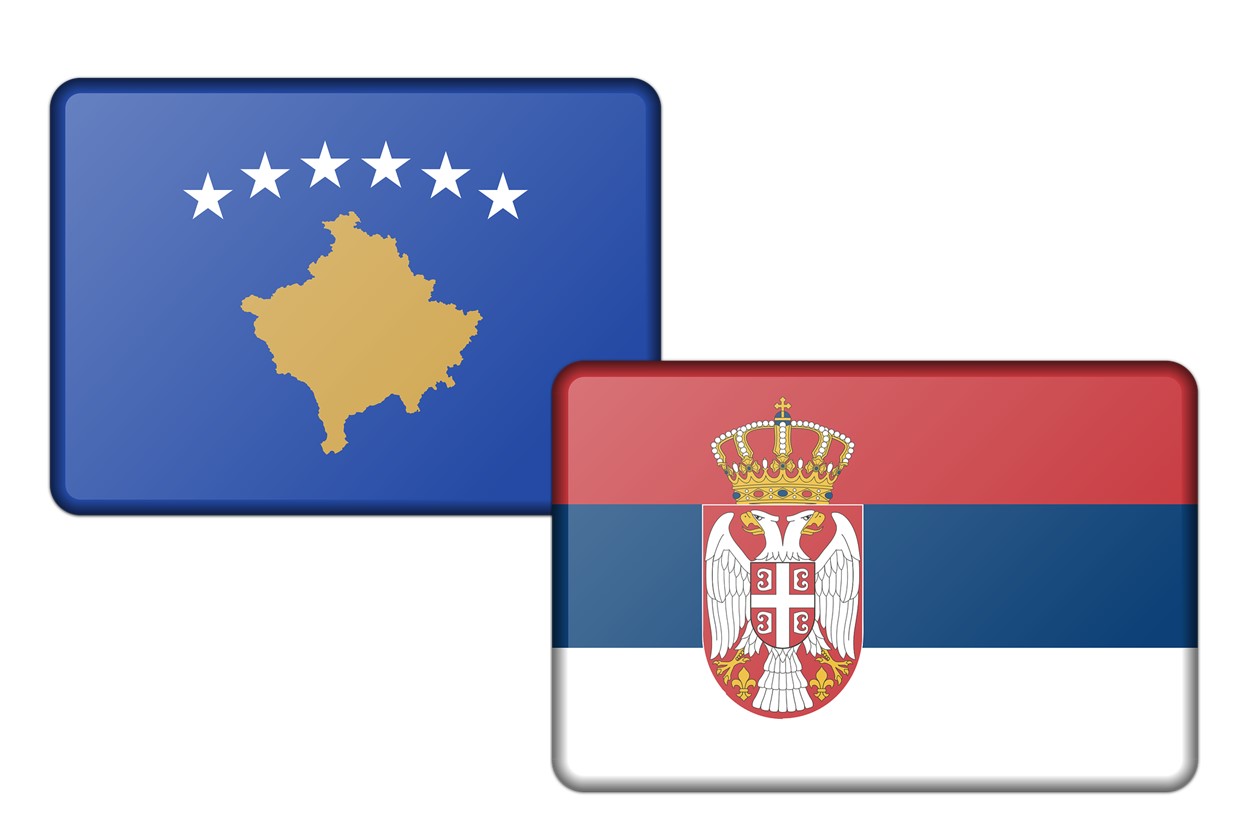It’s now 15 years that Kosovo declared its independence from Serbia on 17 February 2008. As Serbia did not recognise this unilateral declaration of independence, it shortly thereafter filed a request with the United Nations seeking opinion of the International Court of Justice (ICJ) on this declaration. In an Advisory Opinion, the ICJ concluded on 22 July 2010 that “the declaration of independence of Kosovo adopted on 17 February 2008 did not violate international law.”
Today, a number of countries (115 out of 193 member states of the United Nations) have recognised Kosovo as an independent state. Serbia, however, has not changed its opinion and is backed by important international players like Russia and China that still consider Kosovo as being a part of Serbia. Even the EU remains divided on Kosovo’s status with five members (Cyprus, Greece, Romania, Slovakia, Spain) not recognising the state’s sovereignty.
Naturally, tensions between the two countries have been great. In 2011, the UN’s General Assembly adopted a resolution through which it requested the beginning of a dialogue for the normalisation of relations between Kosovo and Serbia. A bumpy road started. Although tensions still remain, it seems that this year a step towards the aim of normalising relations between Serbia and Kosovo was made: many technical and political agreements between the two countries were reached and both parties accepted the “Agreement on the path to normalization between Kosovo and Serbia” (Brussels Agreement) offered by the EU at the Ohrid meeting on 18 March 2023.
The Institute of International Law and International Relations recently welcomed Përparim Gruda (University of Mitrovica, Kosovo) as guest speaker on these recent developments in the Graz International Law Discussion Series (GILDS) organised by Erika de Wet. We took the opportunity to take a closer look at the latest events with Përparim Gruda and to shed light on the Brussels Agreement from a Kosovar perspective.
REWI Uni Graz: What is your opinion on the Brussels Agreement? Is it a (big) step forward?
Përparim Gruda: This agreement, in my opinion, obviously is achieved in the light of Russia's invasion of Ukraine, as a much needed one to avoid an outbreak of conflict in the Western Balkans. The element of security is very important now for the Western Balkans due to the fact that Serbia is a traditional ally of Russia. The rapprochement of Serbia with the West is also in Kosovo's interest. In this sense, it can be said that it is a step forward, but I would not say a big step.
Are there downsides of the agreement?
I can say that this is an insufficient agreement. This is so because it does not contain the recognition of the independence of Kosovo from Serbia and it paves the way for an autonomy of the Serbs within Kosovo, which, in fact, is not done to improve the lives of the Serbian residents of Kosovo, but to create the possibility that Serbia has its influence within Kosovo. In this sense, it is not a final agreement that permanently solves problems between Kosovo and Serbia, but an agreement that ensures that there will be no escalation of the situation between the two countries.
How is the population affected by the circumstance that some countries do not recognise Kosovo as a state?
Non-recognition of Kosovo by some countries, especially from the 5 countries which are members of the European Union, has had and continues to have a great impact on the consolidation of the citizenship of Kosovo in the international plan. This prevents Kosovo from joining some international organizations and the free movement of its citizens, because some of these countries do not even recognize travel documents of the Republic of Kosovo.
In general, what are the major difficulties Kosovo has to deal with at the moment?
I can emphasise several difficulties for Kosovo: the lack of membership in international organizations, especially in the Council of Europe, the emigration of the population to the EU countries and the lack of liberalization of visas. Kosovo also has other internal problems, such as corruption and low economic development, but in these aspects it is at the level of other countries in the Western Balkans and, in recent years after the declaration of independence, positive steps have been taken for development.

